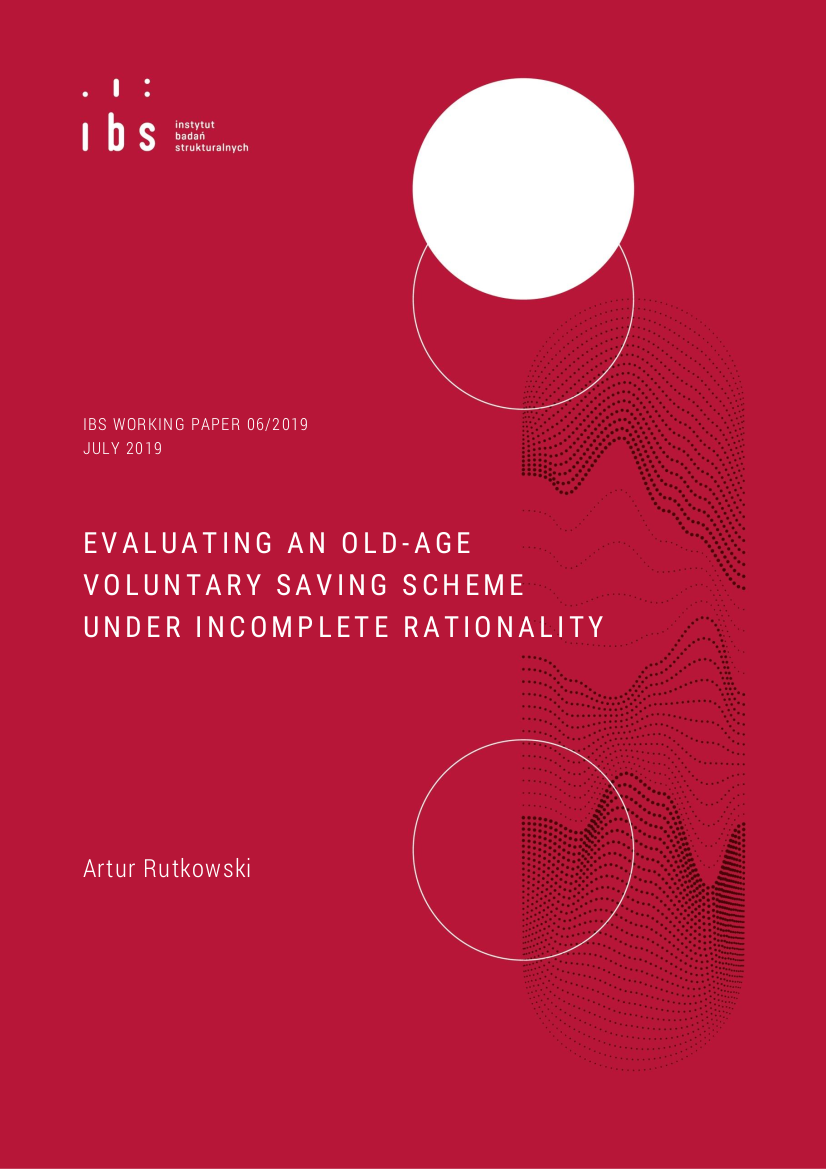We provide ex ante welfare, fiscal and general macroeconomic evaluation of the voluntary old-age saving scheme recently introduced in Poland (Pracownicze Plany Kapitałowe, Employees’ Capital Plans). ECPs provide tax redemptions as well as lump-sum transfers with the objective to foster old-age savings. Reduction in capital income tax revenues and a rise in expenditure needs to be compensated through adjustment in other taxes. We employ an overlapping generations model (OLG) to gauge the plausible magnitude of the macroeconomic and welfare effects and provide insights in terms of microfoundations of these adjustments. Our OLG model features voluntary participation and innovates relative to the literature by introducing agents with hand-to-mouth preferences. We find relatively high crowding out of private savings. In our preferred specification roughly 0.08 to 0.09 PLN of each 1 PLN allocated to ECPs are actually new savings, the rest being displaced from unincentivized private voluntary savings. The plausible values of the effective capital growth range between 0.03 and 0.42 of 1 PLN in ECPs. ECPs reduce welfare of the fully rational agents, unless they offer a sufficiently large annuity. ECPs provide consumption smoothing and interest income to HTM agents.
• Earlier versions of this study received valuable comments from Krzysztof Makarski, Joanna Tyrowicz, Piotr Lewandowski, Hans Fehr and Patrick Puhani. The remaining errors are author’s sole responsibility. The support of Narodowe Centrum Nauki (grant no: 2014/15/G/HS4/04638) is gratefully acknowledged. A non-technical and earlier version of the model employed in this study was utilized in a policy report about Employees’ Capital Plans, available at grape.org.pl/ppk.


